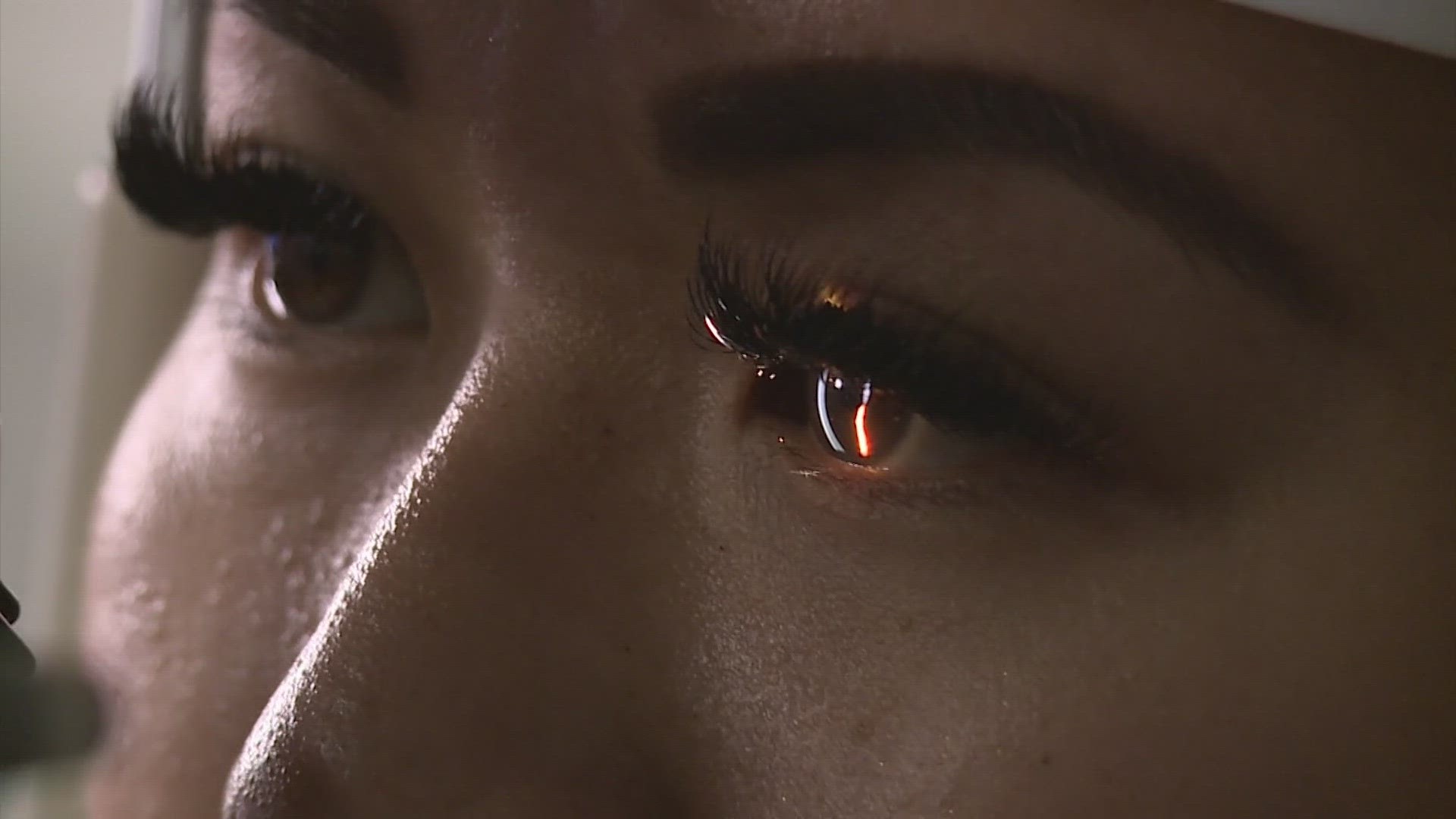HOUSTON — Patients in Houston are some of the first in the country to be offered a new kind of corneal transplant as part of a clinical trial.
The cornea is the clear outer layer at the front of your eye. If it's damaged or diseased, there are few treatment options outside of surgery.
“Unfortunately, there isn’t a drop or something we can do without surgery to make that person see better or to make the cells function better,” Dr. Zaina Al-Mohtaseb, director of research at the Whitsett Vision Group said.
Roughly 50,000 people in the United States undergo corneal transplants every year, according to the Eye Bank Association of America.
“In the past, or even with DMEK surgery, you have one donor to replace that one cornea in the patient. What’s exciting and nice about this new technology, is you have one donor who has the potential of over 200 donor cells you can utilize,” Al-Mohtaseb said.
Al-Mohtaseb is running the local clinical trial testing corneal endothelial cell therapy. The cutting-edge technology is not FDA-approved. Instead of removing and replacing one or several layers of tissue in the eye, the new option being studied injects human donor cells. If it works, doctors say it’s less invasive, there is less risk for complications, and patients recover faster. Because the technology does not have FDA approval, doctors cannot say how many patients have undergone the procedure for the clinical trial. They also cannot comment on the success of those procedures.
“This technology is not FDA approved in the U.S. What’s nice is there is data outside the U.S. of its safety and efficacy and it’s actually approved in Japan,” said Dr. Al-Mohtaseb. “This has been the most exciting thing in my career I’ve been involved in.”
Although it will likely be years before the technology is widely available, if it works, she can already see the potential to help so many people worldwide.

